Lost in choosing Forced Air vs. Hot Water Heating
Hello Team,
I purchased a 1900 sq. ft. colonial (built 1893) and am about to add another 800 sq. ft. to it and gut it. I am very focused on making it efficient; higher grade insulation, good windows, south gain, etc… I am now totally lost as to the heating system to install.
On one hand my architect is advising to go with forced air. It allows us to enjoy AC in the hot months (our master suite is in the attic), and he promises me that there are systems which are quite and highly efficient. ALL my life I’ve been a renter and experienced the one speed forced air heaters (speed and sound of a jet engine). So I am very skeptical of this.
Can someone advise me as to how close of efficiency will I get with forced air heat? Are there any “industry leaders” systems/machines you’d recommend I research? I enjoy hot water as it radiates a long time after its done warming up, but I do know that having two systems (one for AC and one for water pipes) would be considerably more costly. I also realize that the “feel” of a breeze on the human skin automatically makes you feel a notch cooler.
Not sure how close forced air heaters come to hot water in terms of contonious performance, and efficiency. I am trying to be opened minded but I’ve never had good experience with forced air as a renter.
Cheers and Thanks! -Oh and apologies if this was discussed already. believe me I looked around…
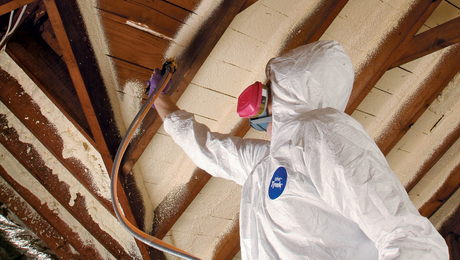

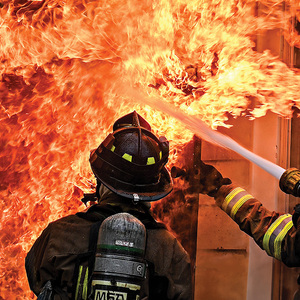
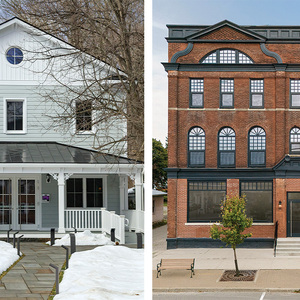
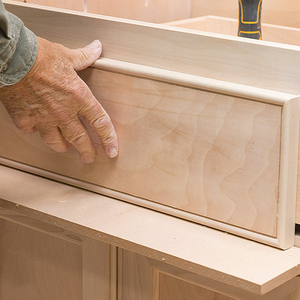
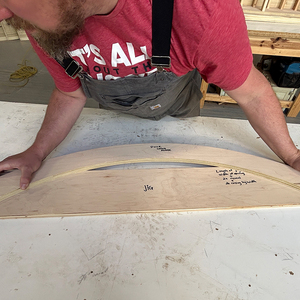













Replies
I recall when I was a kid, half a century ago in Kentucky. We lived in poorly-insulated houses with furnaces that blew like a hurricane. And you still couldn't keep warm. I would take the bedspread off my bed and hold it around the floor register so that the hot air would balloon up the spread like a parachute around me -- the only way to get warm sometimes.
But in our current house (in Minnesota) our gas forced air furnace is in the room next to our bedroom, and you can barely hear it running. Hold your hand over the register and there's just a light breeze.
The difference results from several things:
Houses are much better insulated now, and much less drafty
The ductwork is better (ie, adequate, vs the minimal ductwork back then)
The furnace has a variable speed DC motor, so it only runs as fast as it must
Combustion occurs in a sealed combustion chamber, so you don't get the "jet engine" sound of the burner
A good quality forced air system is not totally silent, but comes pretty darn close. It does require proper design of the ductwork, and the proper choice of equipement, but it's not rocket science.
In terms of efficiency, there are many units available with about 95% efficiency. Hot water boilers traditionally have been a bit lower than that, but current units are listing around 95% as well.
In both cases a lot of efficiency can be lost with a poor distribution system, however. Leaky, poorly insulated ductwork can cost you a lot if the ductwork is run in an unheated attic or another area "outside the building envelope". Similarly, heat can be lost with poorly routed hot water piping, though probably not quite a much. But remember that you want the ductwork sealed and insulated for air conditioning as well as heating, if you go with whole-house AC.
(The ideal thing is to keep as much ductwork as possible "inside".)
Distribution is critical
DanH wrote:
In both cases a lot of efficiency can be lost with a poor distribution system, however. Leaky, poorly insulated ductwork can cost you a lot if the ductwork is run in an unheated attic or another area "outside the building envelope". Similarly, heat can be lost with poorly routed hot water piping, though probably not quite a much. But remember that you want the ductwork sealed and insulated for air conditioning as well as heating, if you go with whole-house AC.
(The ideal thing is to keep as much ductwork as possible "inside".)
+1 on all of this. You can get a high efficiency boiler or furnace, but the distribution losses can kill you. If your house has ideal places for ductwork, it might be a good thing, but if you have to put it in the attic, forget it.
Are you in a climate where heat pumps are common? If so, you should definitely consider one. And, you could also look at ductless heat pumps. A dedicated unit for the master might be perfect--you get very efficient heating and A/C from one unit. Check the web for ductless units from Mitsubishi, Daikin, Fujitsu, etc.
Funny you mention the ballooning bedheets... When I was a kid part of my morning ritual was to sit on the edge of the bed over the register and do the same thing with a long bathrobe.
The other thing spaceghost needs to keep in mind is that the weakness of the Colonial design in keeping the warm or cold air where you want it. Colonials normally have a big open stairway linking upstairs/downstairs. This is the pathway for the river of hot air that rises and the river of cold air that sinks.
The problem is you only have a thermostat located in one part of the house, usually downstairs. In summer, in can be a cozy 70 degrees downstairs... and 90 upstairs. A good modern system will not only incorporate variable speed fans, but also a times air mixing cycle that will blend the air in the house to stabalize it at the correct temp.
Yeah, definitely it should be a zoned system. Both air and water heat can be effectively zoned. "Air mixing" can be a little more complicated, but could be done either with hot air or with the AC air handler for hot water.
Thank You!
Thank you both very much for your feedback. What I am gathering is that the technologies are very similar in efficiency. I am working with an architect who is very adamant about having the duct work insulated, three zones of heat with the third zone, the attic, being closed off when need be.
We are also going to push closed cell insulation into the walls, and perhaps add more on the outside. Waiting to get the bids back...
Cheers!
We built in 2005, and opted for a forced air system (though not zoned). No "jet engine" here, just quiet heat in the winter and quiet cooling in the summer. Done right, it definitely can work.
If you decide on forced air, gather what design specs you can from your architect and/or engineer, and ask for a few quotes from HVAC companies that offer references. I don't think you'll be disappointed.
Ask these folks
See what these guys have to say.
http://www.heatinghelp.com/Forum
I personally believe that hot water heat is superior, but opinions vary.
Good luck.